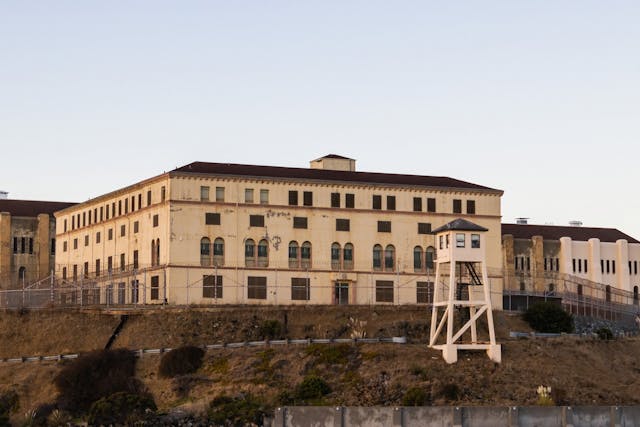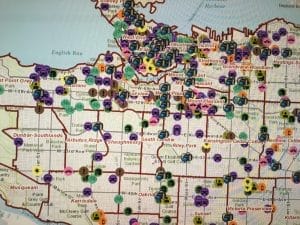by Jason Tarnow | Oct 16, 2020 | Crime, Legal Aid, Legal Rights, Media, Social Media
As we’ve spoken about in previous posts, overrepresentation of Indigenous offenders in the Canadian Correctional System is both disturbing and rampant – making up approximately 30% of all inmates – despite accounting for only 5% of Canada’s population. Within the past decade, the Courts have recognized that this overrepresentation encompasses many factors – including the historical discrimination of Indigenous people in the judicial system.

Back in 1999, the decision of R. v. Gladue by the Supreme Court of Canada served as confirmation that the circumstances of Indigenous offenders are unique, and must be taken into consideration when the Court contemplates the issues of bail and sentencing. This jurisprudence was reaffirmed by the Supreme Court of Canada in the case of R. v. Ipeelee in 2012.
The preparation of a Gladue Report requires a thorough review of the facts of the case and the personal history and circumstances of the Accused, coupled with their Aboriginal heritage, and how the former is influenced by the latter. The assessment of these elements and the authoring of the report must be completed by an individual who is educated and intimately informed of the special challenges that Indigenous people face in the judicial system. These reports are commonly ordered by Courts all across Canada – with the exception of Nunavut, where a Gladue report has never been tendered in Court.
Criminal defence counsel in Iqaluit, Nunavut (where 85.9% of the population identifies as Indigenous) recently requested that the Court Order a Gladue Report for an Indigenous offender whose case is proceeding to sentencing. The presiding Judge, Chief Justice Neil Sharkey, declined to do so – explaining that there are no Gladue Report writers in the Territory. Although there are Writers available in the South (we commonly engage their services for clients in Richmond, Surrey, Port Coquitlam and many other jurisdictions in the Greater Vancouver Area, in addition to Whitehorse, Dawson City, Yellowknife and other communities in the Yukon and Northwest Territories) Chief Justice Sharkey opined that these Writers are not familiar with the Inuit community, as they only author reports for First Nations and Métis offenders. The Court went on to explain that the Accused should not face further delay while awaiting the preparation of a Gladue Report. While it is true that the Government of Nunavut has not created a program within the Territory that trains and employs individuals qualified to prepare Gladue Reports, it is also true that a push to create such a program has never been prioritized. Experienced criminal defence counsel will always advocate for Gladue Reports where they are applicable, as we are well apprised of the value they provide not only to the Accused, but to the Courts and all those who are effected by their proceedings. And while the production of a Gladue Report can certainly cause delay in the case proceeding to sentencing, its influence on the Court could result in a lesser sentence, nullifying any delay created during its production.

The irony lays in the fact that R. v. Ipeelee – the case to reaffirm the Court’s obligation to take judicial notice of the unique circumstances of Indigenous offenders and the importance of Gladue considerations – involves an Indigenous person from none other than Iqaluit, Nunavut. The case was heard before the Supreme Court of Canada on October 17, 2011 – almost exactly 9 years prior to the date of this post.
It is not the sort of irony that leaves you in awe of such a coincidence – rather, it is the kind that leaves you wondering: if the decisions of highest Court in Canada, the loudest and most authoritative body of our legal system, cannot provide a voice to those who need it most….who can?
by Jason Tarnow | Sep 28, 2020 | Crime, Legal Aid, Legal Rights, Media, Politics, Social Media, Wheels Of Justice
Section 2 of the Canadian Charter of Rights and Freedoms grants all Canadians the fundamental right of freedom of expression – but as one young man in Markham, Ontario learned this week, the Charter also permits the enforceme nt of reasonable limits on expression.
nt of reasonable limits on expression.
18 year old Tristan Stronach, a grade 12 student, was charged under section 372(2) of the Criminal Code – making indecent communications – after his instructor had to conclude an online lesson after Stronach allegedly made racist remarks about the black community. The nature of the alleged comments, while not described specifically, has caused some to ask: why isn’t he being charged with a hate crime?
The answer is: because there is no specific “hate crime” offence in the Criminal Code.
Section 372(2) of the Criminal Code reads as follows:
Indecent communications
(2) Everyone commits an offence who, with intent to alarm or annoy a person, makes an indecent communication to that person or to any other person by a means of telecommunication.
“But what about hate speech?”
Section 319(1) of the Criminal Code reads as follows:
Public incitement of hatred
319 (1) Everyone who, by communicating statements in any public place, incites hatred against any identifiable group where such incitement is likely to lead to a breach of the peace is guilty of:
(a) an indictable offence and is liable to imprisonment for a term not exceeding two years; or
(b) an offence punishable on summary conviction.
Wilful promotion of hatred
(2) Everyone who, by communicating statements, other than in private conversation, wilfully promotes hatred against any identifiable group is guilty of
(a) an indictable offence and is liable to imprisonment for a term not exceeding two years; or
(b) an offence punishable on summary conviction.

While it has been made clear that the allegations relate to racist comments towards a single identifiable group – the black community – charges under this section were likely not approved because the evidence is unable to support a conviction. The comments were not made in a “public” place, and while they were made in the virtual presence of a group of individuals, they did not promote hatred – i.e., the comments weren’t made in such a way that they would result in other individuals following suit and creating a breach of the peace as a result.
Notwithstanding the above, if the accused is convicted of making indecent communications, the court will consider to what degree bias, prejudice, or hate played a role. These are aggravating factors that could result in a harsher sentence. Through this legislative structure, these aggravating factors can be considered for a variety of offences – assault, theft, murder, and so on.
As Canadians, we are very fortunate to live in a country that allows us to speak, move, and exist freely – but cases like this are a reminder that equality reigns supreme.
by Jason Tarnow | Jul 2, 2020 | Crime, Criminal Attorney, Legal Rights, Media, Police, Riots, Social Media, Wheels Of Justice
Over the last couple of months, there has been outcry from the public urging the use of BWC’s (Body Worn Cameras) for Canadian law enforcement. Although initially in response to the growing unrest relating to police brutality in the United States, there are echoes of abandoned intentions from Canadian officials dating back at least a few years.
Back in 2015, the Office of the Privacy Commissioner of Canada (“OPCC”) issued a publication regarding the use of BWC by police, in collaboration with privacy agencies in Alberta, New Brunswick and Quebec. The remaining Canadian law enforcement agencies from other provinces and territories acted “in consultation”.
For reference: according to the CBC, there were a total of 2 incidents involving the death of individuals at the hands of law enforcement in New Brunswick between 2012 and 2014, 12 incidents in Quebec, and 14 incidents in Alberta. Interestingly enough, British Columbia (on par with Quebec at 14 deaths) and Ontario (with the highest rate of police violence resulting in death in the country at 25 deaths between 2012 and 2014) were only acting in consultation.
The report hails the effectiveness of BWC to capture high quality images, videos, and audio recordings – so effective, in fact, that the OPCC had grave concerns regarding their ability to capture material that could jeopardize the privacy of innocent and uninvolved bystanders.

The report goes on to tout the value of BWC for evidentiary purposes, including analytics so sophisticated that the material obtained would likely be suitable for biometric comparison – aka, facial recognition.
There is no arguing the fact that the use of BWC by police has implications for the privacy of citizens in their everyday lives – especially since once fitted, citizens would likely expect on-duty officers to have their devices on a continuous basis as opposed to intermittently.
Benefits of BWC include the ability to review interactions between police and the public, recording communications between the police and suspects in the course of an investigation, identifying potential witnesses, and of course recording interactions between police officers. Many criminal cases involve evidence obtained through the use of dash cams, which provide audio from inside a police cruiser and video from the perspective of the driver. The effectiveness of this technology loses value when the investigation takes place outside of a police vehicle, as the audio often fails to capture intelligible communications between police and a suspect, or between officers themselves. Although the dash cam is kept running, the audio portion is often useless when the interactions between police and a suspect take place outside the vehicle, and the windows of the police cruiser are closed, or if the police/suspect leave the immediate area where the audio is successfully captured.
The report indicates that while continuous recording would undoubtedly provide a greater level of accountability for the actions of police, the threat to personal privacy reigns supreme:
“From an accountability perspective, continuous recording may be preferable because it captures an unedited recording of an officer’s actions and the officer cannot be accused of manipulating recordings for his or her own benefit. However, from a privacy perspective, collecting less or no personal information is always the preferred option”
In 2014, the Edmonton Police concluded a pilot project regarding the use of BWC by its officers. The conclusion?:
“The cameras had no effect on police use-of-force incidents and said there was no statistical difference in resolving police complaints”
According to an analysis done by CBC, there were a total of four deaths between 2012 and 2014 relating to officers of the Edmonton Police Service. By comparison, there were 9 deaths in the same period relating to officers of the Toronto Police Service. The results of the Pilot Project may have seen different results in a different jurisdiction.
The Edmonton Police explained that in addition to being ineffective to expose cases of police misconduct, the related expenses were simply unrealistic. Perhaps surprisingly, it’s not the cost of the devices themselves, but the expense to store and manage all of the material collected: somewhere between 6 and 15 million dollars over five years, which also includes hiring personnel qualified for the job.
Finding the balance between accountability, transparency and oversight of police against the protection of privacy for Canadian citizens is a legitimate and profound task – one that cannot be taken lightly. As the calls for BWC in Canadian law enforcement grow louder, and as Canadians revisit the reality of what it is to be privileged in this country, we can only hope that the values of dignity and equality are recognized as being more valuable than the cost of the equipment that very well could save lives.
by Jason Tarnow | Jul 24, 2017 | Crime, Legal Rights, Police, Social Media, Wheels Of Justice


The Vancouver Police Department announced that it will be using a new form of intelligence to stop crime before it happens.
No, it isn’t the formation of the Psychic Task Force. It isn’t any sort of “Big Brother” surveillance method (I think) – rather, the VPD has declared it will be the first law enforcement agency in Canada to utilize a “crime prediction model” that will tip officers off to property-crime offences before they happen.
Unsurprisingly, the public has been given very little information about what this new tool is able to do. So far, all we have been told is that it is a computerized program that was apparently very successful in its 6 month pilot project.
The program identifies both residential and commercial areas that display a high-likelihood for property crime. Surveillance areas are set up within a 100-500 meter perimeter, and officers are then dispatched to those areas for visible public presence.
The presence of police, of course, acts as a deterrent for thieves and vandals.
Interestingly enough, this comes as a further development to the 2015 crime mapping tool developed by the VPD. This interactive map is available to the public, for use by anyone interested in learning more about which areas in Vancouver are deemed higher risk. While many people attribute
While this may seem like a weak method of combatting serious and ongoing theft and vandalism, preventative measures are only deemed necessary once an issue has spiralled out of control.
Charges that police hope to see a reduction in as a result of this new preventative measure:
- Break and Enter
- Break and Enter to commit an Indictable offence
- Theft under $5,000
- Theft over $5,000
- Mischief
- Possession of stolen property
It isn’t unusual to see “petty” crimes, such as minor theft, escalate into more serious situations that can include violent offences as well – for example, a man breaks into a vehicle looking for valuables, but the owner of the vehicle happens to come down to his car as the crime is in progress. An altercation ensues, police attend, and the charges include break & enter, theft, AND assault. By preventing the theft, the entire situation could have been avoided.
Ideally, this tool will aid police in preventing some crimes from happening, but realistically, crimes will still occur in the areas that aren’t padded by police presence.
We are conveniently located in Richmond, B.C. only a few steps away from Brighouse Station on the Canada Line, which brings you from various locations in Metro Vancouver in 20 minutes. We service all areas of the lower mainland (including but not limited to Surrey, New Westminster, Port Coquitlam, North Vancouver, and Abbotsford) the interior of B.C. (including but not limited to Cranbrook, Kelowna, Kamloops, and Salmon Arm), Northern B.C. (including but not limited to Prince George, Prince Rupert, and Quesnel) and in the Yukon Territory where we offer services in Whitehorse, Dawson City, and Old Crow. Contact our office today for your initial consultation.
by Jason Tarnow | Jun 28, 2017 | Crime, Criminal Attorney, Legal Aid, Legal Rights, Police, Wheels Of Justice
What you say CAN and WILL be used  you (seriously)!
you (seriously)!
I think it is important to discuss the importance of exercising constitutional rights/freedoms. In particular, the right to remain silent when being questioned by law enforcement about alleged criminal activity.
Why does this seem to be the one freedom that no ordinary citizen wants to evoke? It is understandable of course – to a point. Yes, you want to be respectful and cooperative to with the police in the course of their investigation. This means conducting yourself maturely and appropriately, and politely advising the officer that you wish to exercise your right to silence – meaning you do not wish to have any further discussions whatsoever.
And you definitely are not taking the lie detector test.
There is a difference between cooperating and conceding. Exercising your constitutional right to remain silent does not indicate guilt – it does absolutely nothing except protects your best interests, liberty, and quite literally your freedom (depending on circumstances).
Assuming guilt as a result of silence is what’s known as an adverse inference – and in the realm of criminal justice in Canada, an Accused person is protected from such an insinuation. So, there really is no downside to the advice that seems to evade people during times of crucial importance: don’t talk to the police. Remain silent. Protect your best interests. Seek legal advice. Trust the guidance you receive from seasoned legal professions. We have dedicated our livelihood to protecting the fundamental and inherent rights awarded to every single individual in this country – but in order to obtain the best possible outcome, you, the client, must have confidence in your legal counsel’s ability as your advocate.
This is best demonstrated by being mindful of the first piece of advice you will receive: DO. NOT. TALK. TO. POLICE.
Instead, advise them that any dealings they wish to have with you should be done through your criminal defence lawyer. Once retained, a criminal lawyer becomes the conduit between you and the police. This not only ensures that all communications will be appropriate and methodical – it also provides a new point of contact for the police generally.
Here is a short (non-exhaustive) list of circumstances under which seeking legal advice is strongly recommended:
1) You have been arrested and charged with a criminal offence;
2) You have been contacted by the police for a statement, interview, etc and you are unsure if you are being looked at as a suspect;
3) There is a warrant out for your arrest; or
4) You have reason to believe you will be investigated, arrested, or charged in the near future.
We are conveniently located in Richmond, B.C. only a few steps away from Brighouse Station on the Canada Line, which brings you from various locations in Metro Vancouver in 20 minutes. We service all areas of the lower mainland (including but not limited to Surrey, New Westminster, Port Coquitlam, North Vancouver, and Abbotsford) the interior of B.C. (including but not limited to Cranbrook, Kelowna, Kamloops, and Salmon Arm), Northern B.C. (including but not limited to Prince George, Prince Rupert, and Quesnel) and in the Yukon Territory where we offer services in Whitehorse, Dawson City, and Old Crow.
Whether the crime is violent (assault, aggravated assault, sexual assault, assault causing bodily harm, manslaughter, murder), financial (fraud over/under $5,000, possession of stolen credit cards, forgery), or falls under any other category, the experienced criminal defence lawyers at Tarnow Law Offices are well equip and ready to help navigate you through this difficult time from start to finish.



 nt of reasonable limits on expression.
nt of reasonable limits on expression.



